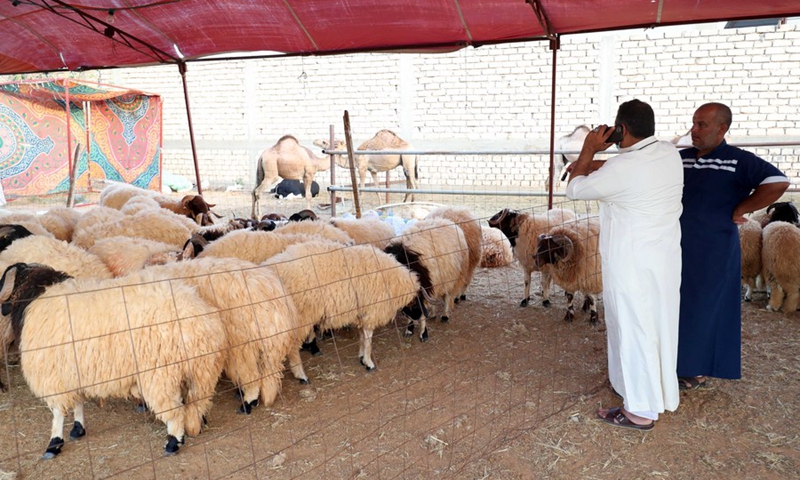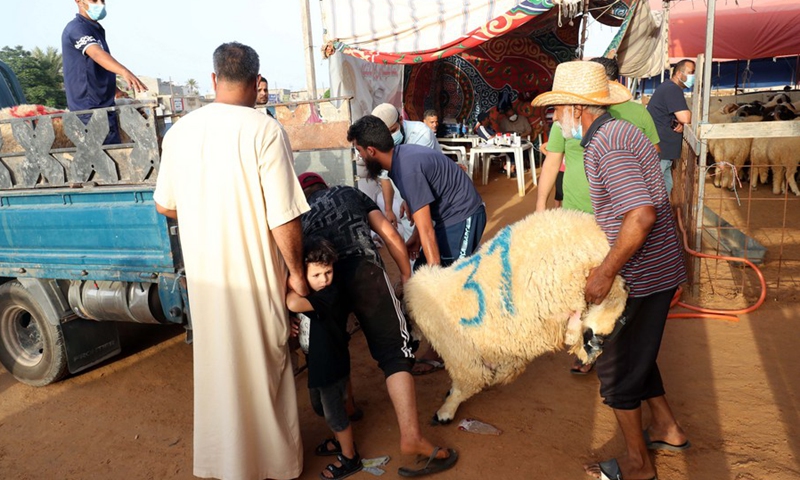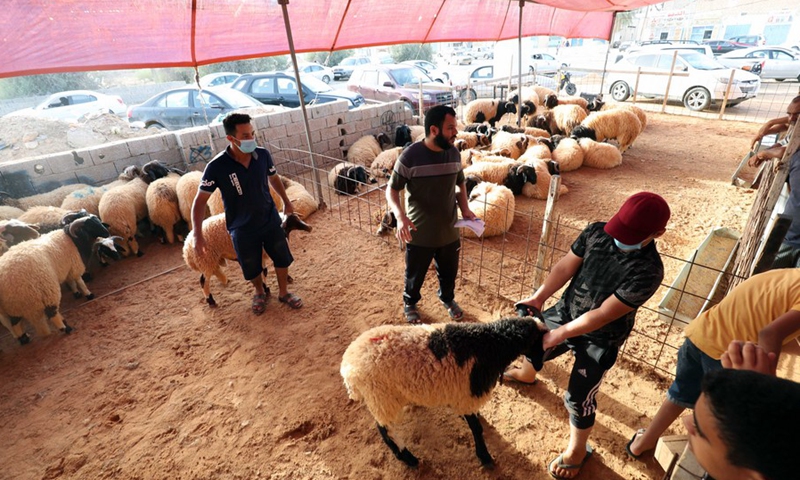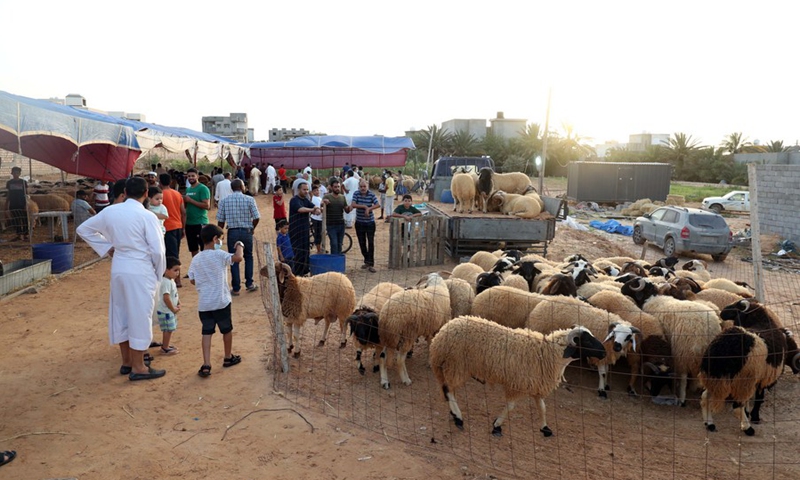
A man buys a sheep ahead of the Eid al-Adha festival at a market in Tajura, eastern Tripoli, Libya, July 16, 2021.(Photo: Xinhua)

People load a sheep on a truck ahead of the Eid al-Adha festival at a market in Tajura, eastern Tripoli, Libya, July 16, 2021. (Photo: Xinhua)

A man checks a sheep ahead of the Eid al-Adha festival at a market in Tajura, eastern Tripoli, Libya, July 16, 2021.(Photo: Xinhua)

People visit a sheep market ahead of Eid al-Adha festival in Tajura, eastern Tripoli, Libya, July 16, 2021.(Photo: Xinhua)
As the Eid al-Adha festival approaches, the Libyans have been struggling to make ends meet against the COVID-19 pandemic and the high cost of living.
Eid al-Adha, known as the Festival of the Sacrifice, is one of the two Islamic holidays celebrated worldwide every year. According to Islamic teachings, Muslim families should buy a sheep, goat, or cow as a sacrifice in the early morning of Eid al-Adha and distribute its meat to the poor as a charity gift.
Mahmoud Khairallah, a sheep farmer, said this year's Eid al-Adha is different from the past ones because of the current economic situation and the COVID-19 pandemic.
"I've been doing this for about 40 years. I import sheep from eastern Libya that has the best breeds. Those breeds are in huge demand. However, it is different this year as people are not buying as many as they used to," Khairallah told Xinhua.
"At this time of the year in the past, I would have sold all my sheep. But this year, I only sold 20 (out of about 100 sheep)," he said.
"Perhaps the reason for the low sales this year is the financial crisis ... A sheep is worth about 1,500 dinars (333 U.S. dollars), which is a large sum of money for many people," Khairallah explained.
The Libyan government has attempted to control the high prices of sheep by importing more than 300,000 livestock over the past few weeks and giving away more than 50,000 sheep to low-income families. However, nothing much has changed about the economic suffering of the people.
Khairi Sayah, a citizen, believes that the Libyans struggle each year to buy sheep during Eid al-Adha.
"I've been coming to the sheep market every day for a week trying to find an affordable sheep. But the prices are too high," Sayah told Xinhua.
"I only have 1,000 dinars, which is not enough for a good sheep. I support a family of seven. That amount of money is only enough for a smaller overpriced sheep," he said.
Besides, the increasing COVID-19 infections in Libya have affected the local market. Some cities, especially those in western Libya, have banned the sale of sheep over the concerns of the pandemic.
"The pandemic forced us to travel to nearby cities to buy sheep. Cattle markets in the city are closed. Only a few markets are still open but it's too risky to go amid the high infections," Nuri al-Balazi, a Libyan from the western city of Zawiya, told Xinhua.
A few days ago, Libyan Prime Minister Abdul-Hamed Dbeibah imposed new precautionary measures against the COVID-19 pandemic, as the North African country has been recording an increasing number of cases lately.
The new measures include closing coffee shops and restaurants, banning weddings and funerals, and stopping public transportation for two weeks.
Libya has recorded a total of 217,434 COVID-19 cases so far, including 182,785 recoveries and 3,253 deaths.
